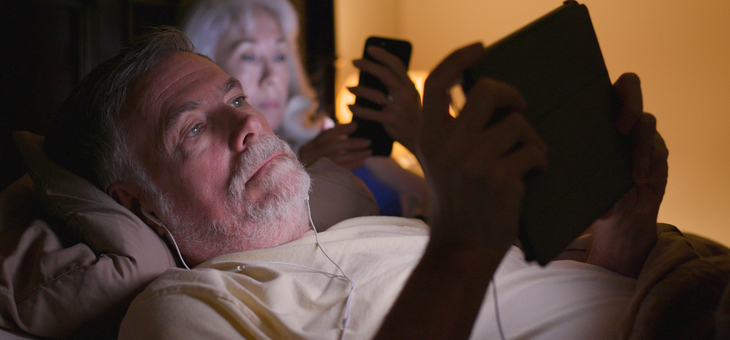‘Early to bed and early to rise, makes a man healthy, wealthy and wise.’
The popular proverb might hold true for making you wealthy and wise, but scientists have found that going to bed too early, or indeed too late, isn’t great for your heart health.
Researchers found that the perfect time for going to bed to lower your risk of heart disease is between 10 and 11pm. Going to bed earlier or later was associated with a higher risk of developing heart disease, according to the University of Exeter study.
Read: Boozy boomers given dementia warning
Study author Dr David Plans explained that while many studies had been done on sleep duration and cardiovascular disease, little research had been done on sleep timing.
“The body has a 24-hour internal clock, called circadian rhythm, that helps regulate physical and mental functioning,” Dr Plans explained.
“While we cannot conclude causation from our study, the results suggest that early or late bedtimes may be more likely to disrupt the body clock, with adverse consequences for cardiovascular health.”
Read: How to treat your feet properly
The study included 88,026 people with an average age of 61 years and the bedtime was measured, rather than self-reported, using a wrist worn device.
They were then followed up at a later date for a new diagnosis of cardiovascular disease, which was defined as a heart attack, heart failure, chronic ischaemic heart disease, stroke, and transient ischaemic attack.
With an average follow-up of 5.7 years, 3172 participants in the study developed cardiovascular disease, with the incidence highest in those with sleep times at midnight or later and lowest in those with sleep onset from 10 to 10.59pm.
Read: Most critical COVID patients have symptoms for months
Compared to those in the lower risk 10 to 10.59pm category, there was a 25 per cent higher risk of heart disease with sleep onset at midnight or later, a 12 per cent greater risk for those going to sleep at 11 to 11.59pm and a 24 per cent greater risk for those who fell asleep before 10pm.
“Our study indicates that the optimum time to go to sleep is at a specific point in the body’s 24-hour cycle and deviations may be detrimental to health,” Dr Plans explained.
“The riskiest time was after midnight, potentially because it may reduce the likelihood of seeing morning light, which resets the body clock.
“While the findings do not show causality, sleep timing has emerged as a potential cardiac risk factor – independent of other risk factors and sleep characteristics.
“If our findings are confirmed in other studies, sleep timing and basic sleep hygiene could be a low-cost public health target for lowering risk of heart disease.”
Breaking the results down by sex, the association with increased heart disease risk was much stronger in women, with only sleep onset before 10pm remaining significant for men, with Dr Plans saying that the reasons for the sex differences in the findings still unclear.
“It may be that there is a sex difference in how the endocrine system responds to a disruption in circadian rhythm,” Dr Plans said.
“Alternatively, the older age of study participants could be a confounding factor since women’s cardiovascular risk increases post-menopause – meaning there may be no difference in the strength of the association between women and men.”
What time do you usually go to bed? Are these findings good or bad news for you? Why not share your thoughts in the comments section below?
If you enjoy our content, don’t keep it to yourself. Share our free eNews with your friends and encourage them to sign up.

